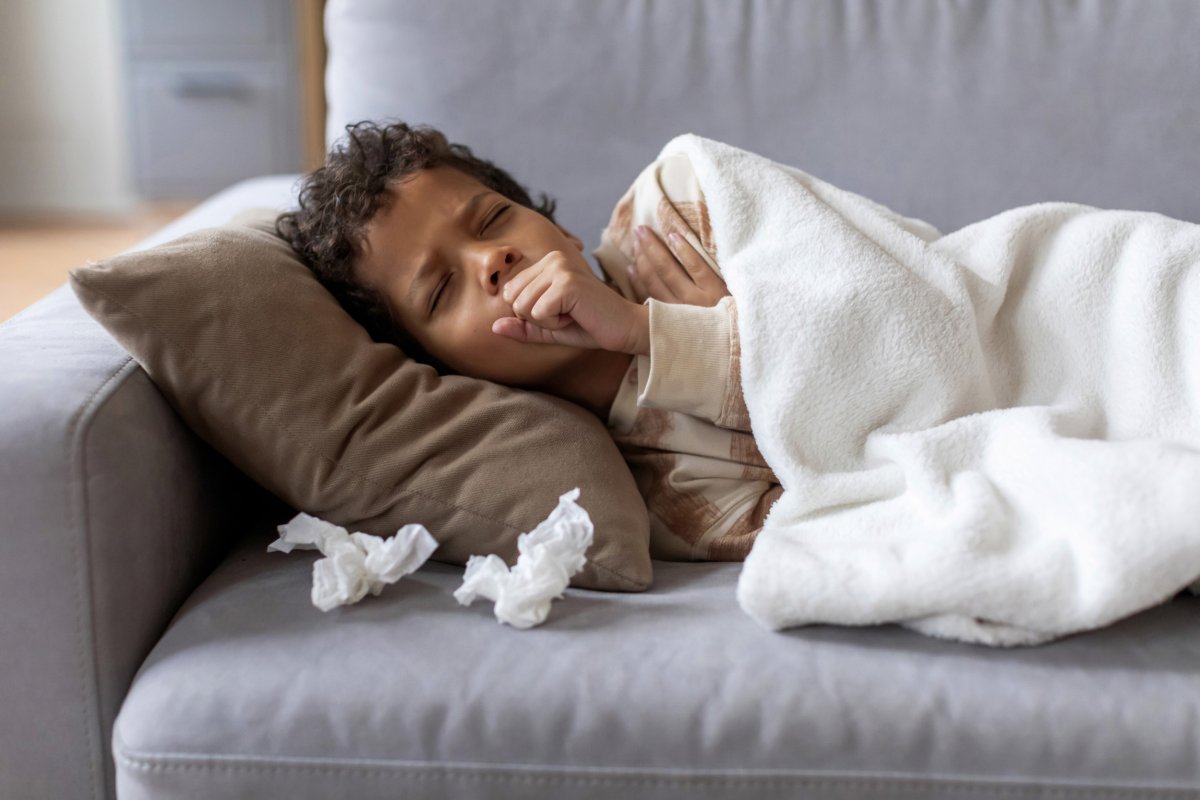The United States is fighting a "quad-demic" this winter with four major viruses—COVID-19, influenza, respiratory syncytial virus (RSV) and norovirus—with infants at particular risk, Dr. Ryan Fulton recently warned.
"This year, we've seen earlier and more intense surges of RSV and the flu compared to what we're used to," Dr. Fulton, section chief of general pediatrics at Carilion Children's Hospital and faculty member at the Virginia Tech Carilion School of Medicine, said in a statement.
The U.S. Centers for Disease Control and Prevention (CDC) has reported an increase in visits to doctors on a scale not seen in 15 years.
"COVID-19 emergency visits are less frequent than during earlier stages of the pandemic, but the virus remains a factor," Fulton added. "What's different now is that more children are presenting with co-infections, such as RSV and flu simultaneously, which increases the risk of complications and hospitalizations."
Young children—particularly those under the age of 6 months—are at the highest risk of severe illness from these viruses, Fulton said.
"Children with underlying conditions like asthma, heart disease or immune system deficiencies are especially vulnerable," he added.

What Are the Symptoms of the 'Quad-Demic' Viruses?
COVID-19, the flu and RSV share many symptoms and may be challenging to distinguish from one another.
"Flu symptoms often include high fever, cough, sore throat, congestion, muscle aches and fatigue. Some children may also experience vomiting or diarrhea," Fulton explained.
While influenza A is behind most severe infections in adults, it is the less common influenza B that tends to cause the most aggressive illnesses in children.
The most common symptoms seen with COVID-19 infection are congestion, cough, fatigue, fever and a sore throat—accompanied, in some cases by a loss of taste or smell.
RSV, meanwhile, Fulton says, "typically causes a runny nose, cough, sneezing, fever and wheezing. In infants, symptoms can be more subtle, such as poor feeding, irritability or pauses in breathing."
He added: "We're particularly concerned about infants because RSV can significantly impact their ability to eat and breathe."
Unlike the other three, which are respiratory viruses, norovirus causes an inflammation of the stomach or intestines, giving it its nickname of the "stomach flu."
Symptoms, Fulton explains, can include diarrhea, nausea, stomach pain and vomiting, occasionally accompanied by body aches or fever.
Why Are These Viruses Surging Now?
"The reason this year is seeing more aggressive outbreaks is really a perfect storm of circumstances," Fulton told Newsweek.
"Throughout the pandemic, we had an interruption in the normal course of circulation of flu and RSV, so some people—especially little kids—haven't built up the same degree of protection they would in normal times.
"And then to add insult to injury, these viruses are behaving unpredictably post-pandemic, with shifts in seasonality and severity."
In addition, Fulton explains, vaccination levels against flu and RSV have been lower that hoped, which had compromised community immunity.
"Add in more social mixing with fewer protections like masking and distancing, and these viruses are circulating more freely," he added.
How to Protect Children—And What Do if They Fall Ill
"Frequent handwashing with soap and water is one of the most effective ways to protect children," Fulton explains.
He also encourages parents to teach kids not to touch their faces, to avoid contact with sick individuals to reduce the risk of transmission and to ensure that flu and COVID-19 vaccinations are up to date to minimize the risk of severe outcomes.
"Regularly disinfecting high-touch surfaces—such as doorknobs and toys—also helps reduce the spread," Fulton added.
Children who do become ill, the pediatrician said, are best kept at home from daycare or school to reduce the risk of any of the viruses spreading further.
Do you have a tip on a health story that Newsweek should be covering? Do you have a question about infectious diseases? Let us know via science@newsweek.com.
Update 02/14/25, 12:55 p.m. ET: This article was updated with additional comments from Ryan Fulton.
Is This Article Trustworthy?
Is This Article Trustworthy?
Newsweek is committed to journalism that is factual and fair
We value your input and encourage you to rate this article.
Newsweek is committed to journalism that is factual and fair
We value your input and encourage you to rate this article.
About the writer
Ian Randall is Newsweek's Deputy Science Editor, based in Royston, U.K. His focus is reporting on science and health. He ... Read more



